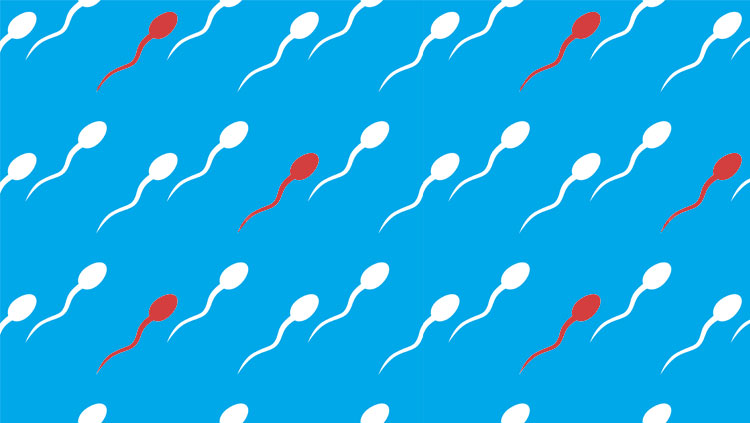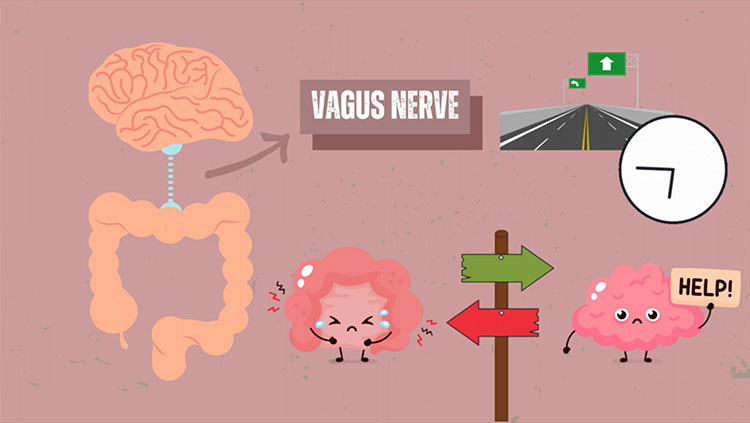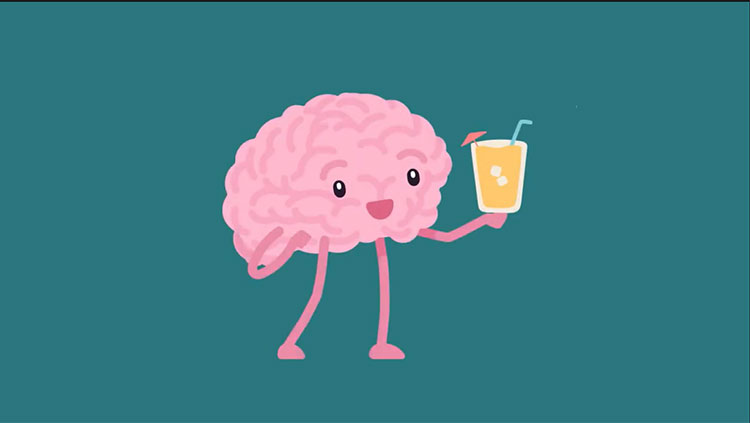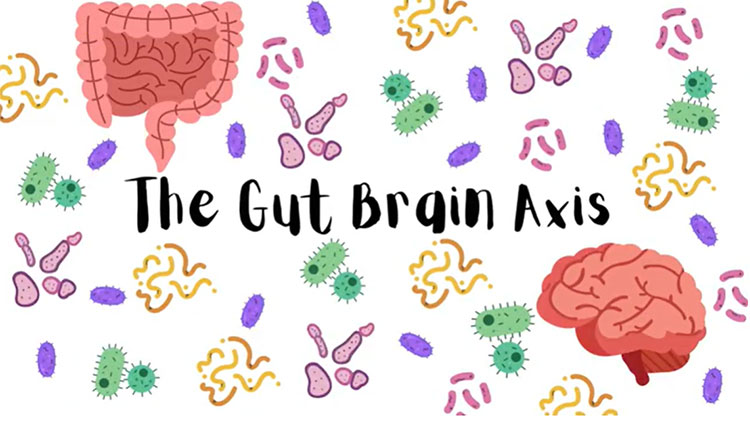Stressed Dads Can Pass on Heightened Stress Vulnerability to Kids
- Published7 Jun 2021
- Author Alexis Wnuk
- Source BrainFacts/SfN

Dads can pass on many things to their kids: an X or Y chromosome, brown eyes, groan-inducing dad jokes. Over the last decade or so, researchers have learned they can also impart the effects of their lived experience. If they’ve experienced trauma or chronic stress, their kids might be more vulnerable to stress themselves.
A new study in mice sheds light on how this happens: chronic stress reprograms gene expression in sperm, leading to increased susceptibility to stress in offspring, researchers from the Icahn School of Medicine at Mount Sinai have found.
This study shows that “sperm can be an active vehicle for the intergenerational transmission of some stress-related traits,” says Eric Nestler, director of the Friedman Brain Institute and lead author of the study, which appears today in JNeurosci.
Life experiences can be passed down from one generation to the next through epigenetic changes. These aren’t changes to DNA itself — the sequence of nucleotide building blocks stays the same. Rather, our experiences can tweak other parts of the genetic machinery, turning some genes on and silencing others.
But whether and how sperm transmitted these modifications wasn’t clear. In previous studies, Nestler’s team found the offspring of stressed male mice showed signs of anxiety and depression. But when they repeated the experiment using in vitro fertilization, rather than allowing the mice to mate naturally, the deficits were barely detectable.
“Maybe by putting the sperm cells in a Petri dish, we’re allowing some of that subtle epigenetic change to be erased,” Nestler says.
For the current study, he and his team stressed would-be mouse dads by placing them in a cage with a larger, more aggressive mouse for 10 minutes a day for 10 days. Then they let the stressed mouse mate with a female and extracted some of their sperm to artificially inseminate another female. This is a difficult procedure to pull off in mice, but one that the research team thought might preserve any epigenetic changes in sperm.
Both mice produced by natural mating and those produced by artificial insemination showed more signs of anxiety in response to stressors compared to offspring of unstressed dads. Artificial insemination didn’t capture everything that natural mating did, Nestler says, but it captured a good part of the behavior profile.
Next, the researchers analyzed the RNA in the mice’s sperm. RNA, or ribonucleic acid, is a readout of a cell’s DNA. Some RNAs code for proteins, others turn genes on and off, and still others have functions that remain mysterious. Being beaten up by the bigger, meaner mouse day in, day out overhauled RNA in stressed dads, changing the expression of more than 1,000 genes. Interestingly, they only saw this dramatic change in mouse dads that showed signs of anxiety. More resilient mice, who weren’t traumatized by their encounter with the bully, escaped most of these alterations.
Some of the most striking genetic changes involved bits of genetic material called long non-coding RNA. “It’s an interesting newly discovered type of RNA that we didn’t even know existed a decade ago,” Nestler says. These 200-nucleotide long strands of RNA don’t code for proteins but instead regulate how other genes are expressed and are believed to be important in several developmental processes.
“That’s very interesting and surprising,” says Ashley Cunningham, a PhD student in Nestler’s lab and first author of the study. “I just wouldn’t expect it to be a regulator in susceptible but not resilient animals.”
For Nestler, the next task is to figure out how exactly these changes influence offspring. “How does a change in sperm or an egg lead to a different organism that behaves differently?” he says. “It’s kind of crazy.”
Still, he doesn’t want to heap too much praise on epigenetics. “It raises the specter than an individual’s capacity in life is partly dependent on their parents’ — perhaps even their grandparents’ — experiences,” Nestler says. But the science doesn’t totally support this. Epigenetics, while important, are not nearly as robust as an individual’s genes or environment, Nestler says. “It’s a modest effect in magnitude and something that can be overcome with the right experience.”
Cunningham wants to study just that. Maybe by enriching the mice’s environment — providing more toys or extra bedding and treats — they could help them better cope with stress.
The implications of this research go beyond the lab. “As a Black woman, I am personally invested in understanding how different factors influence personal experience, especially when thinking about race,” she says. She points to health disparities that disproportionately burden people of color. Social factors like income, family wealth, and access to healthcare all play a role.
“I feel like this study kind of contributes to that narrative and provides insight into the fact that not only does our environment matter, but our parents’ environment matters,” she says. “I think it’s really important to try to understand how these things are being transmitted and if there are things we can do to provide better support for communities that have gone through generational trauma.”
CONTENT PROVIDED BY
BrainFacts/SfN
References
Cunningham, A. M., Walker, D. M., Ramakrishnan, A., Doyle, M. A., Bagot, R. C., Cates, H. M., Peña, C. J., Issler, O., Lardner, C., Browne, C., Russo, S. J., Shen, L., & Nestler, E. J. (2021). Sperm transcriptional state associated with paternal transmission of stress phenotypes. Journal of Neuroscience. https://doi.org/10.1523/JNEUROSCI.3192-20.2021
Also In Body Systems
Trending
Popular articles on BrainFacts.org

















